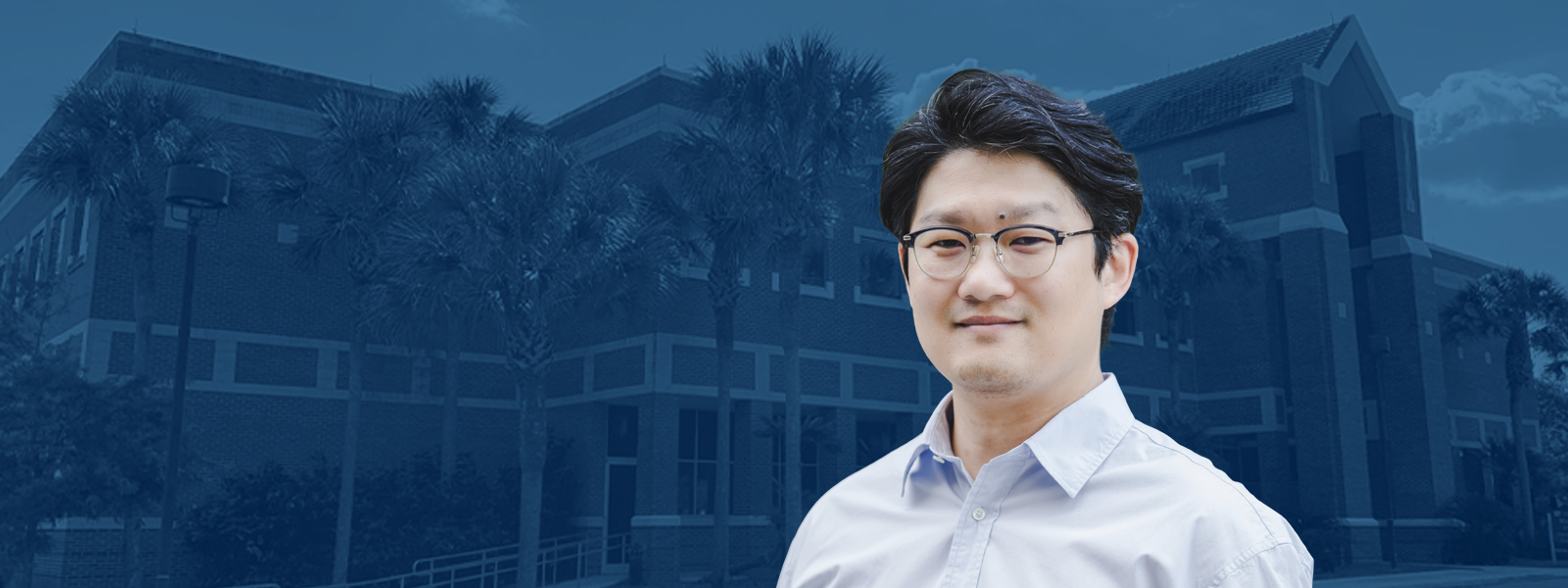In the internet age, the landscape of human-generated data has undergone a remarkable transformation. From the early days of website creation to the current era of cloud storage, social media, big data, and artificial intelligence, the collective output of information has soared with each passing year, marking a substantial increase in the volume and complexity of the content created.
As the amount of stored information exponentially increases over time, the gap between accessing that data and processing it also widens. In other words, while computer processors become faster and faster, the inability to pull data from memory chips at those same speeds creates data analysis bottlenecks in everything from medical research to engineering. This phenomenon is typically described as the memory wall.
Honggyu Kim, Ph.D., assistant professor in the Department of Materials Science & Engineering, thinks the pathway through the memory wall lies in ferroelectric ceramic materials.
“The pivotal role these materials could play in future technological innovations, ranging from advanced memory devices to semiconductors, is unquestionable,” Kim said. “With their potential applications in compact electronics, energy storage, and energy-efficient data processing, they’re likely to redefine electronic devices as we know them.”
To help unlock the power of these materials, Kim plans to use his recently funded National Science Foundation (NSF) Faculty Early Career Development Program (CAREER) Award. The funding supports his research on filling a critical knowledge gap in functional materials: controlling and characterizing metastable phases in ferroelectric ceramic materials.
Ferroelectricity is a property of certain materials exhibiting a natural electric polarization that can be reversed when subjected to an external electric field. Kim’s focus is on developing material characterization techniques for hafnium oxide (HfO2), a nanoscale ferroelectric material with promising applications in information storage and processing technologies.
“The ultimate objective is not only to enhance our understanding of these materials but also to devise strategies for their precision engineering,” Kim said. “The challenge lies in pinpointing and stabilizing them, given their nuanced structural disparities.”
Kim’s focus centers on leveraging the distinctive attributes of ceramic materials, with a particular emphasis on their thermodynamically metastable characteristics, aiming to craft innovative ferroelectric materials with customizable features.
“Utilizing thermodynamically metastable phases presents a new avenue for creating novel functionalities of ceramic materials for technologically critical applications such as nanoscale electronics and energy-storage technologies,” Kim said. “However, identifying design pathways to stabilize metastable materials poses a significant challenge due to the difficulties in characterizing the structure of their ground-state and metastable phases, not to mention how they will change while actually in service.”
Kim will collaborate with UF Department of Electrical and Computer Engineering faculty members Toshikazu Nishida, Ph.D., professor and associate dean for academic affairs at the Herbert Wertheim College of Engineering, and Roozbeh Tabrizian, Ph.D., an associate professor and holder of the Nelms Rising Star Endowed Professorship. Nishida is a renowned expert in ferroelectric materials and devices, while Tabrizian provides critical insights into the importance of understanding the structure of HfO2 thin films for ferroelectric and piezoelectric devices.
“This award propels our research group’s capability, pushing the boundaries of materials characterization with atomic-scale spatial resolution and high sensitivity to diverse atomic structures,” Kim said. “Ultimately, we’ll generate insights into the structural origins of breakthrough materials.”
Kim earned his Ph.D. in materials science from the University of Illinois at Urbana-Champaign in 2015. After his postdoctoral studies in advanced electron microscopy, functional ceramics, and quantum materials at the University of California, he joined the University of Florida in 2017. In 2023, Kim also received an NSF grant for his shape memory alloy research.
The CAREER Award represents the NSF’s highest accolade for junior faculty, aiming to establish a solid groundwork for a lifelong journey of scientific leadership, and is granted to exceptional early-career scientists who embody the teacher-scholar role by seamlessly combining research and education.

